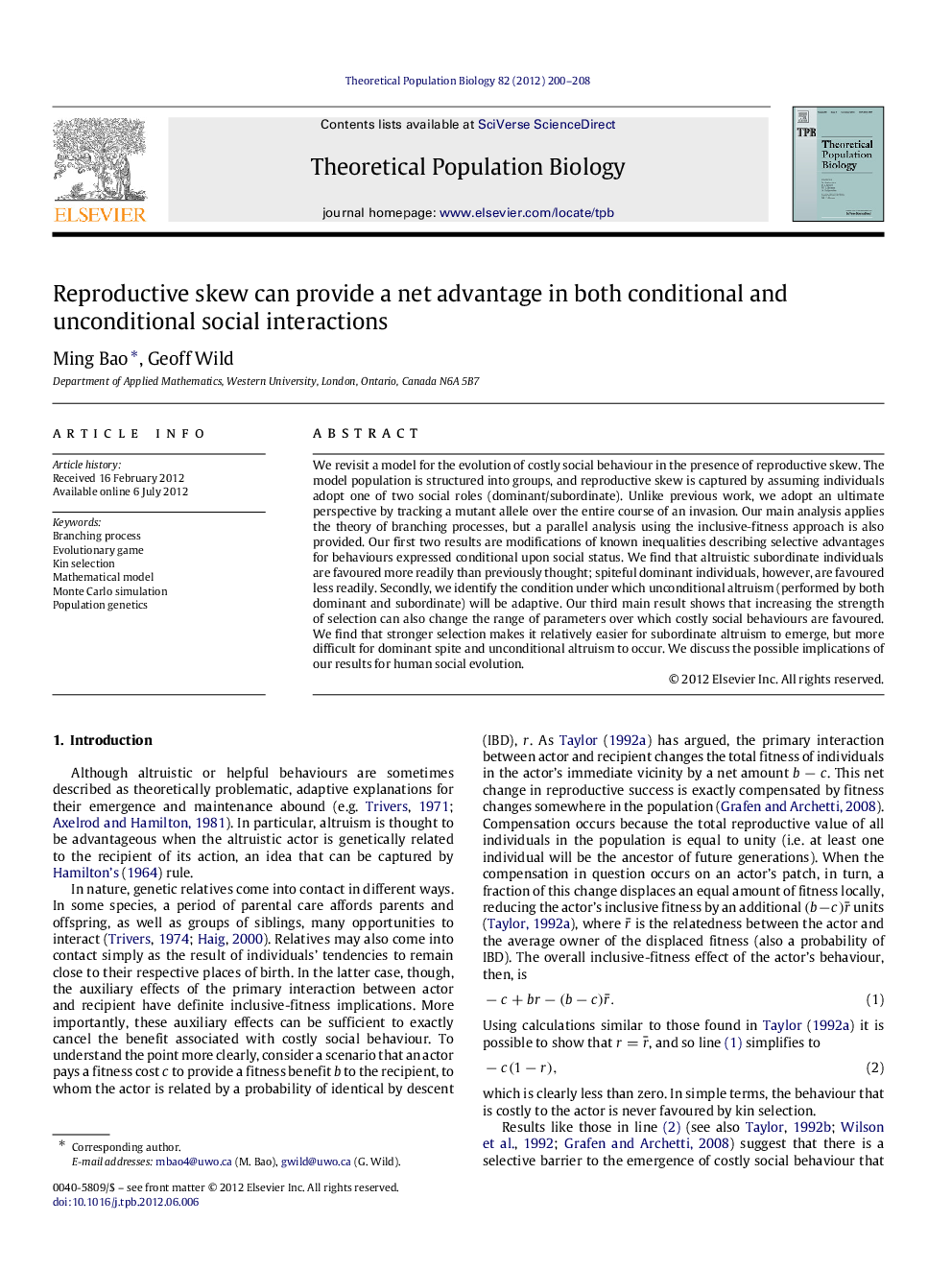| کد مقاله | کد نشریه | سال انتشار | مقاله انگلیسی | نسخه تمام متن |
|---|---|---|---|---|
| 6372417 | 1320566 | 2012 | 9 صفحه PDF | دانلود رایگان |

We revisit a model for the evolution of costly social behaviour in the presence of reproductive skew. The model population is structured into groups, and reproductive skew is captured by assuming individuals adopt one of two social roles (dominant/subordinate). Unlike previous work, we adopt an ultimate perspective by tracking a mutant allele over the entire course of an invasion. Our main analysis applies the theory of branching processes, but a parallel analysis using the inclusive-fitness approach is also provided. Our first two results are modifications of known inequalities describing selective advantages for behaviours expressed conditional upon social status. We find that altruistic subordinate individuals are favoured more readily than previously thought; spiteful dominant individuals, however, are favoured less readily. Secondly, we identify the condition under which unconditional altruism (performed by both dominant and subordinate) will be adaptive. Our third main result shows that increasing the strength of selection can also change the range of parameters over which costly social behaviours are favoured. We find that stronger selection makes it relatively easier for subordinate altruism to emerge, but more difficult for dominant spite and unconditional altruism to occur. We discuss the possible implications of our results for human social evolution.
Journal: Theoretical Population Biology - Volume 82, Issue 3, November 2012, Pages 200-208